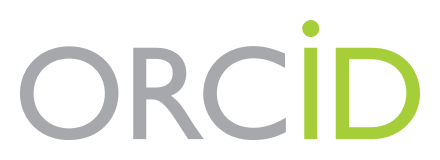Household Care Burden and Women’s Market Participation Intensity: A Binary Logistic Analysis
DOI:
https://doi.org/10.65486/4nqycn52Keywords:
Women entrepreneurship, Household care burden, SMEs, Market participation, Afghanistan, Logistic regressionAbstract
Purpose – This paper investigates how household care burdens influence the market participation of women entrepreneurs in Kandahar city. The study aims to investigate whether factors such as childcare access, household size, perceived social norms, and business attributes influence the likelihood of women working 30 hours or more per week in their enterprises.
Method – Using survey data from 420 women-owned small and micro enterprises across the food, retail, services, and handicrafts sectors, a binary logistic regression model was applied. The dependent variable determined whether entrepreneurs worked more than 30 hours weekly. Independent variables included household care hours, childcare availability, household size, perceived community norms, travel time, security incidents, and business-level controls.
Result – Regression analysis revealed that unpaid care work significantly reduced women's entrepreneurial labour supply (H1 supported). At the same time, access to childcare facilities markedly increased the likelihood of working 30 hours or more per week (H2 supported). Perceived community endorsement also showed a strong, positive effect on participation (H4 supported), and education levels were positively associated with increased work hours (H9 supported). Household size (H3), security incidents (H6), bookkeeping skills (H8), and enterprise resources (H10) were not significant predictors. Travel time had a marginally negative effect (H5 weakly supported), and prior training showed a modest, borderline significant positive influence (H7 partially supported).
Practical Implications – The results emphasise the importance of offering affordable childcare, enhancing mobility and security, and fostering community support to unlock women’s full business potential. For policymakers and NGOs, interventions should integrate household support systems alongside business development initiatives to promote sustainable growth.
Originality/Novelty – This study is among the first to quantitatively examine the effect of household care burden and social norms on women’s entrepreneurial labour supply in Kandahar through econometric modelling.
Downloads
References
Adom, K., Asare-Yeboa, I. T., Quaye, D. M., & Ampomah, A. O. (2018). A critical assessment of work and family life of female entrepreneurs in Sub-Saharan Africa: Some fresh evidence from Ghana. Journal of Small Business and Enterprise Development, 25(3), 405–427. https://doi.org/10.1108/JSBED-02-2017-0063
Akyelken, N. (2017). Mobility-Related Economic Exclusion: Accessibility and Commuting Patterns in Industrial Zones in Turkey. Social Inclusion, 5(4), 175–182. https://doi.org/10.17645/si.v5i4.1147
Becker, G. S. (1993). Human Capital. In The University of Chicago Press (3rd edition). The University of Chicago Press. https://doi.org/10.1093/nq/s1-IV.92.83-a
Charmes, J. (2019). The Unpaid Care Work and the Labour Market: An analysis of time use data based on the latest World Compilation of Time-use Surveys. ILO. https://www.bollettinoadapt.it/wp-content/uploads/2020/01/wcms_732791.pdf
Cherutich, S. K. (2016). Elderhood in ethnic conflict management in Rongai, Nakuru county, Kenya; 1992-2015 [Master of Arts, Kenyatta University]. https://ir-library.ku.ac.ke/bitstream/123456789/15370/1/Elderhood%20in%20ethnic%20conflict%20management%20in%20Rongai.pdf
Clark, S., Laszlo, S., Kabiru, C., & Muthuri, S. (2017). Can Subsidised Early Child Care Promote Women’s Employment?: Evidence from a Slum Settlement in Africa (05; GrOW Working Paper Series). https://aphrc.org/wp-content/uploads/2019/07/Mat-Employment_gwp-05-2017.pdf
Dixit, A., Popal, A., Kumar, G., & Meena, N. (2024). Study of factors influencing women's entrepreneurship in Kabul, Afghanistan. International Journal of Scientific Research in Engineering and Management (IJSREM), 08(05), 1–5. https://doi.org/10.55041/IJSREM33531
Eagly, A. H., & Wood, W. (2012). Social Role Theory. In Handbook of Theories of Social Psychology (pp. 458–476). SAGE Publications Ltd. https://doi.org/10.4135/9781446249222.n49
Fabrigar, L. R., & Wegener, D. T. (2011). Exploratory factor analysis. Oxford University Press.
Hakimi, M., Fazil, A. W., Ahmady, E., Qarizada, A., & Quraishi, T. (2024). Cyber Opportunities: Fostering Women’s Empowerment through E-Commerce in Afghanistan. Room of Civil Society Development, 3(1), 1–12. https://doi.org/10.59110/rcsd.275
Henry, C., Foss, L., & Ahl, H. (2015). The Language of Inclusion and Exclusion in Immigration and Integration (M. Schrover & W. Schinkel, Eds.). Routledge. https://doi.org/10.4324/9781315692241
Jaim, J. (2022). All About Patriarchal Segregation of Work Regarding Family? Women Business-Owners in Bangladesh. Journal of Business Ethics, 175(2), 231–245. https://doi.org/10.1007/s10551-020-04619-w
Jane, N. C., Gambo, N., Enesi, O. E., & Abubakar, H. L. (2024). Entrepreneurial Training and Women Entrepreneurial Performance in Southeast Nigeria. International Journal of Research and Innovation in Social Science, VIII(III), 2141–2157. https://doi.org/10.47772/IJRISS.2024.803150
Julius Tumba, N., A. Onodugo, V., Etim Akpan, E., & Festus Babarinde, G. (2022). Financial Literacy and Business Performance among Female Micro-Entrepreneurs Investment Management and Financial Innovations, 19(1), 156–167. https://doi.org/10.21511/imfi.19(1).2022.12
Karim, S., Kwong, C., Shrivastava, M., & Tamvada, J. P. (2023). My mother-in-law does not like it: resources, social norms, and entrepreneurial intentions of women in an emerging economy. Small Business Economics, 60(2), 409–431. https://doi.org/10.1007/s11187-021-00594-2
L. Ngalesoni, O., R. Msendo, A., & A. Mwakifwamba, G. (2025). The dual burden of women entrepreneurs. A case study of Mbuyuni village, Monduli. African Journal of Social Issues, 8(1), 59–68. https://doi.org/10.4314/ajosi.v8i1.5
Llados-Masllorens, J., & Ruiz-Dotras, E. (2022). Do financial skills influence women’s entrepreneurial intentions and motivations? International Journal of Gender and Entrepreneurship, 14(1), 69–94. https://doi.org/10.1108/IJGE-01-2021-0017
Mamo, A., Abera, M., Abebe, L., Bergen, N., Asfaw, S., Bulcha, G., Asefa, Y., Erko, E., Bedru, K. H., Lakew, M., Kurji, J., Kulkarni, M. A., Labonté, R., Birhanu, Z., & Morankar, S. (2021). Maternal Social Support and Determinants of Health Facility Delivery in Rural Ethiopia. https://doi.org/10.21203/rs.3.rs-819229/v1
Mardisetosa, B., Khusaini, K., & Gumelar Widia Asmoro. (2020). Personality, Gender, Culture, and Entrepreneurial Intentions of Undergraduate Students: Binary Logistic Regression. Jurnal Pendidikan Ekonomi Dan Bisnis (JPEB), 8(2), 128–143. https://doi.org/10.21009/JPEB.008.2.5
Musengimana, J. (2025). Reducing and Redistributing the Burden of Unpaid Care Work for Development in Sub-Saharan Africa. African Multidisciplinary Journal of Research, 1(1), 212–227. https://doi.org/10.71064/spu.amjr.1.1.2025.340
North, D. C. (1990). Institutions, institutional change and economic performance (1st ed.). Cambridge University Press. https://books.google.com/books?hl=en&lr=&id=oFnWbTqgNPYC&oi=fnd&pg=PA10&dq=North,+D.+C.+(1990).+Institutions,+institutional+change,+and+economic+performance.+Cambridge+University+Press.&ots=s-ivN8FmOa&sig=1iDWHh-BoXnpTG1ZETpuTGTd9uQ
Peduzzi, P., Concato, J., Kemper, E., Holford, T. R., & Feinstein, A. R. (1996). A simulation study of the number of events per variable in logistic regression analysis. Journal of Clinical Epidemiology, 49(12), 1373–1379. https://doi.org/10.1016/S0895-4356(96)00236-3
Razavi, S. (2007). The political and social economy of care in a development context: Conceptual issues, research questions and policy options (3). https://socialprotection-humanrights.org/wp-content/uploads/2018/04/Razavi-paper.pdf
Saunders, M. N. K., Lewis, P., & Thornhill, A. (2019). Research Methods for Business Students (8th ed.).
Scott, W. R. (2008). Institutions and Organisations: Ideas and Interests (3rd edition). Sage Publications.
Sinha, A., Kumar Sedai, A., Bahadur Rahut, D., & Sonobe, T. (2024). Well-being costs of unpaid care: Gendered evidence from a contextualised time-use survey in India. World Development, 173, 106419. https://doi.org/10.1016/j.worlddev.2023.106419
Yamane, T. (1967). Statistics, an introductory analysis, Determining sample size. University of Florida.
Zahra, N., Javed, A., & Munoz Boudet, A. M. (2023). What Do We Know About Interventions to Increase Women’s Economic Participation and Empowerment in South Asia: Care Polices and Care Services. Washington, DC: World Bank. https://doi.org/10.1596/40080
Downloads
Published
Issue
Section
License
Copyright (c) 2025 Arghand Journal of Social Sciences

This work is licensed under a Creative Commons Attribution 4.0 International License.














